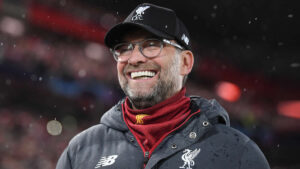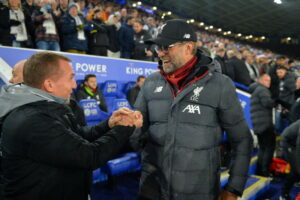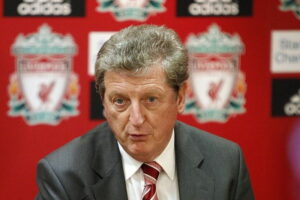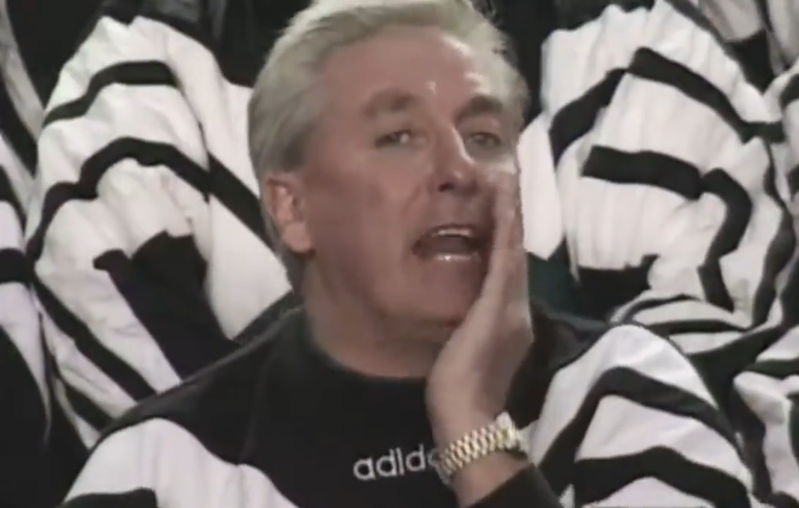
When Graeme Souness left the club, it resulted in many inside Liverpool Football Club wondering where to turn next. The decision to hire the Scot in the first place was seen as being a sure-fire hit in the wake of Kenny Dalglish’s surprise departure, given Souness’s success as the Rangers manager as well as his ability on the football pitch. That it didn’t work out for him meant that there was a degree of uncertainty inside Anfield around whether or not it was time to turn away from those closely associated with Liverpool’s past. In the end, though, it was felt that the boot room was the place to look.
Roy Evans had been the quiet, unassuming member of that boot room culture, having been appointed as the reserve team trainer in 1974. In the years that followed he worked under the likes of Bill Shankly, Bob Paisley and Joe Fagan, learning all of the tricks of the trade that such managers had turned to to win the club championships and European Cups galore. Evans wasn’t seen as the sexiest appointment at a time when Manchester United were beginning to impose themselves on the Premier League, but he did get the Reds playing exciting, attacking football.
The Early Years
If you wanted proof of the idea that Roy Evans was Liverpool through-and-through then you’d doubtless find it in how long he spelt at the club alone. Born on the fourth of October in 1948 in Bootle on Merseyside, Roy Quentin Echlin Evans join the club as a schoolboy. He graduated from Lancashire schoolboys to England schoolboys and played alongside the likes of Trevor Brooking, for he only had eyes on one club.
He later said, “I was a Liverpudlian. I wanted to play for Liverpool.” He signed professional forms with the club when he was just 17-years-old.
A great picture of Roy Evans, one of #LFC‘s greatest servants during a training session at Melwood. #thisismelwood pic.twitter.com/g2JXq0mKRo
— This Is Melwood (@ThisIsMelwood) July 31, 2021
His first appearance came for Bill Shankly during the 1969-1970 campaign, with two more following before the end of the season. In the following season he made another four appearances, but he didn’t get selected at all in the following two campaigns. Though desperate to break into the first-team on a regular basis, it was difficult for the youngster to make an impression in a team that was challenging for and winning the league title on a regular basis. He mainly played when someone was injured, but the majority of his games came the reserves.
Moving into Coaching
Though he made 11 appearances for the Liverpool first-team, it was clear to most that Evans was unlikely to break through in any meaningful way. Instead, it was felt by those in the know that he might make a good coach, so he was asked to take over the training of the reserves in August 1974. At the time, the club Chairman, John Smith, said, “We have not made an appointment for today but for the future. One day, Roy Evans will be our manager.” That appointment didn’t happen until many years later, long after he’d cut his teeth as a coach with Liverpool’s second-string.
Not just a manager: Roy Evans made his debut for #LFC first team on this day in 1970. The Reds faced Sheffield Wednesday at home and despite failing to score in the first half, they eventually comfortably won 3-0.
Roy made just 11 appearances for the first team.#LFChistory_net pic.twitter.com/vman1nA0XD— LFChistory.net (@LFChistory) March 16, 2023
Evans had considered moving elsewhere to get his game time, but Shankly recognised something in him that he thought would make him a good manager. Only in his mid-twenties at the time, Evans twice refused the offer and was loaned to the Philadelphia Atoms in the North American Soccer League, winning the Soccer Bowl whilst there. When he returned to Anfield, though, nothing had changed and the offer was made for a third time. Now 26, Evans decided to take the club up on the offer, using his organisation skills in order to get the best out of the reserve players.
Joining the Boot Room
There aren’t many things in British football history as well-known and respected as the Liverpool boot room. It was, according to the stories, where the club’s managers worked with their coaching team to come up with the plans that would allow them to dominate first England and then the rest of Europe. Speaking about it, Evans said, “The boot room was not about the place, that was just a little room with some boots in. The boot room was about the people. Being part of that was special. They were all different characters who were brought together by this shared desire to do what was best for Liverpool. The way it all worked was brilliant really.”
Roy Evans, one of #LFC‘s greatest servants, a fan, left-back, reserves coach, assistant manager & finally manager, celebrates his 75th birthday today. Native of Bootle, Roy is the only remaining member of one of the most iconic places in football history, the Boot Room. @Roy_Evo pic.twitter.com/f61u4d5ftJ
— Carl Clemente (@clemente_carl) October 4, 2023
To an extent, it was the mix of personalities that made it such a success, with Bob Paisley the quiet type who struggled to get his words out. Evans said that he would forget the names of players, both those of the opposition and of his own team. Joe Fagan, meanwhile, told you how it was, being ‘like your dad’. Ronnie Moran, meanwhile, was the hard case, always making sure that everyone was doing the right thing and having no time for big time Charlies. Evans put his arm round players instead, playing the good cop to Moran’s bad cop, remaining in charge of the reserves for a decade.
Roy Evans was born on 4 October 1948 in Bootle. His playing career at #LFC wasn’t remarkable, but Roy did so much for Liverpool on coaching and managerial level over the years! Roy Evans deserves our utmost respect. Best wishes!#LFChistory_net pic.twitter.com/hNKjxlH9Ha
— LFChistory.net (@LFChistory) October 4, 2022
He learnt well from the people in the boot room, who let him run the reserves in his own way, as long as it was within the rules that had been established for Liverpool. He was given a free hand to pick the team and coach them how he saw fit, but he was constantly given advice and guidance from some of the best in the business. When the reserves weren’t playing, Evans would be in the first-team dressing room, listening to what Paisley, Fagan and Moran were saying to the team that won back-to-back European Cups and league after league on the domestic front.
The manager, whether it be Paisley, Fagan or later Kenny Dalglish, would listen to what his coaches had to say and then make the final decision. They would entertain coaches from the opposition after matches, getting them in the boot room and asking them questions about every aspect of their preparation, regardless of how the game had gone. Over a period of 19 seasons, Evans witnessed the club finish outside of the top two just once, which came in the season when the Reds won the European Cup for the third time; success other clubs could only dream of.
Becoming Liverpool Manager
Evans worked with Graeme Souness during the Scot’s time in charge of the club, enjoying his honesty even whilst things were falling apart on the pitch. When he left the role in the January of 1994, Evans was worried that his time at the club might be up too. Instead, he was offered the manager’s job, 28 years after he’d first joined the club. It wasn’t a surprising appointment to most, on account of the fact that Liverpool had a tradition of promoting from within. The problem for Evans was that he knew many of the players well, meaning that he had to distance himself from them.
The good news was that he had inherited a decent enough squad of players. Exciting young prospects Robbie Fowler and Steve McManaman were emerging from the Academy and establishing themselves in the first-team, allowing for a decent blend of youth and experience. During his first full season in the hot-seat, Evans saw his team sitting in third place at the turn of the year, getting 45 points from the first 23 games and being just two points behind Manchester United in second. It also saw the Reds win their first trophy for three years when they best Bolton Wanderers in the League Cup final.
15 September 1996: Patrik Berger destroying Leicester City at Filbert Street
Czech international bagged a brace in his only second game for #LFC! Roy Evans introduced him for Stan Collymore after the HT, but 45 minutes was enough for Berger to find the net twice.#LFChistory_net pic.twitter.com/U6FLNTLaaM
— LFChistory.net (@LFChistory) September 15, 2022
If there were any concerns that Liverpool wouldn’t properly back the new manager, they were alleviated when the Reds spent a then-British record amount to sign Stan Collymore from Nottingham Forest. It meant that Liverpool were considered favourites for the title in the 1995-1996 season, with Blackburn Rovers having won the Premier League under Kenny Dalglish the year before and then moved the Scot into the Director of Football role. Manchester United, meanwhile, had sold three important players and were relying on promoting members of the youth team.
Sadly, the title race was a battle between Manchester United and Newcastle United by the Christmas, with the Red Devils clinching the title, in part thanks to Liverpool’s 4-3 defeat of the Magpies. Liverpool finished third, missing out on the FA Cup thanks to an Eric Cantona goal in the final at Wembley, losing 1-0 to their fierce rivals. The club had moved from fourth to third over the previous season, amounting 71 points in the first 20-team season, which was the equivalent of having notched up 78.5 points the season before when there were 22 teams in the top-flight.
The Beginning of the End
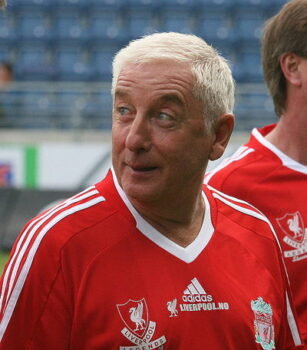
In the 1996-1997 season, Liverpool were going for the title as well as competing in the European Cup Winners’ Cup. Evans built his side around Fowler and McManaman, adding Patrik Berger and seeing a young Michael Owen emerge through the ranks. The club led the Premier League a number of times, having a five-point lead at one point. The Reds lost to Paris St Germain in the semi-final of the European Cup Winners’ Cup, also struggling in the league. It ended up that Liverpool finished fourth, whilst Manchester United won the title with a seven-point margin.
Collecting three fewer points than the season before, the Liverpool squad earned the nickname the ‘Spice Boys’ thanks to the lifestyles they were leading off the pitch. Though United’s players were also going out to bars and restaurants, they were winning matches and trophies and therefore escaped similar abuse from the press. At the end of the season, Stan Collymore moved to Aston Villa. Evans was reluctant to put too much pressure on Michael Owen, in spite of his ability, instead bringing in German striker Karlheinz Riedle and former United midfielder Paul Ince.
The Reds were still thought of as being potential title challengers, but an injury to Robin Fowler that effectively ruled him out for the season meant that Owen was brought in anyway, scoring 18 goals in 36 league games. It wasn’t enough to improve on the previous season’s tally, with Liverpool ending the season with 65 points, three fewer than the season before for the third straight season. It meant that the Reds finished third, missing out on the re-branded European Cup, the Champions League, and having another season the UEFA Cup to look forward to.
Joint-Managers
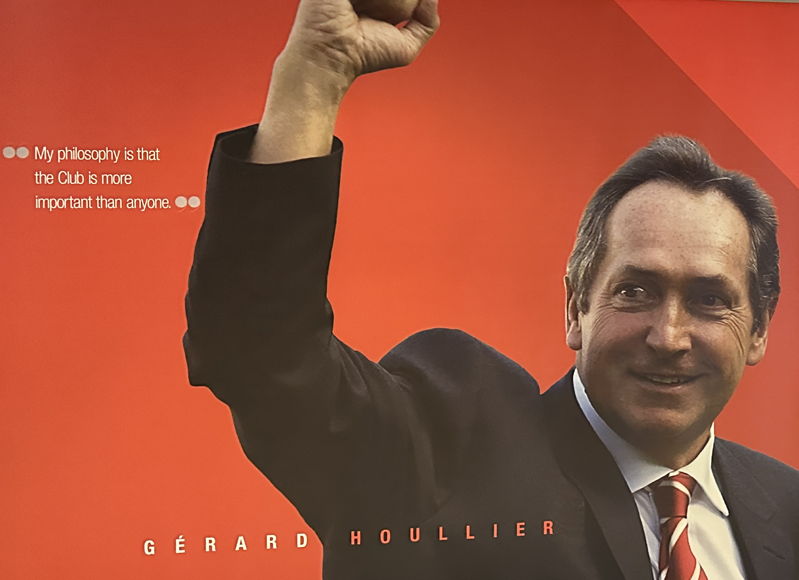
In 1998, Ronnie Moran decided it was time to retire from Liverpool, having been with the club since 1952. It all but signally the end of the boot room, with the plan being that Gérard Houllier would come in to replace him. As the time of Houllier’s appointment grew closer, however, it was decided that someone with his standing in the game should be more than just a coach. As a result, the Frenchman was made joint-coach alongside Evans, much to the surprise of the press who turned up to their first press conference together and witnessed an awkward arrangement.
#OnThisDay in 1998 Roy Evans resigned as @LFC manager. The experiment with co-management with Gerard Houllier hadn’t worked #LFC @LFCVine @James_Carroll84 @LivEchoLFC @TheRedmenTV @Phil_Thompson4 @JamesPearceLFC @AnfieldWatch @LFCHistoryShow pic.twitter.com/z5l895r1Z4
— Football On This Day (@ThreeLionsThen) November 12, 2023
Evans had made Liverpool fun to watch, out-scoring the Newcastle team that had been branded ‘The Entertainers’. Houllier, meanwhile, wanted to take a more defensively-minded approach to proceedings. Tensions came to the fore, with mixed messages being given to players who weren’t sure who they were supposed to listen to.
In October 1998, Evans finally decided that his long association with the club had reached its conclusion. He decided to walk away and leave Houllier in sole charge, having spent the majority of his life as an employee of Liverpool Football Club.
Roy Evans’ Honours List
During his time as the manager of the club, Roy Evans took charge of 244 games and won 123 of them. He drew 63 games and lost 58 of them, meaning that he ended up with a win percentage of 50.40%. He won just one trophy as Liverpool manager:
- League Cup: 1

